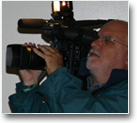
 |
  Trent University’s Environmental Program Gains National AccreditationFOR IMMEDIATE RELEASE Bachelor of Science in Environmental and Resource Science accredited by the Canadian Environmental Accreditation Commission Thursday, October 28, 2010, Peterborough Trent University’s Bachelor of Science in Environmental and Resource Science (ERS) has become the first university program to be officially accredited to the National Standard of Environmental Programs in Canada by the Canadian Environmental Accreditation Commission (CEAC) of the Environmental Careers Organization (ECO) Canada. “Trent stood out for the thoroughness of the case it made for accreditation, and the quality of its faculty and facilities,” said Dr. Stephen Bocking, professor and chair of Trent’s ERS program. Created to assess the quality of more than 400 environmentally-related education programs in Canada, the accreditation program demonstrates to students, parents, educators and industry that environmental programs have met a national standard. “This is important to students and graduates,” explained Prof. Bocking, “because accreditation provides independent and objective confirmation that the Trent ERS Program offers an outstanding environmental science program. In other words, it is not just us who say this; it is experts from other universities, and the Commission itself, who have confirmed it.” Trent’s Bachelor of Science in Environmental Resource Science Program (B.Sc. in ERS) is a four-year honours degree that is based on more than 90 available courses in environmental science and studies offered by the ERS Program and by other Trent departments. The B.Sc. in ERS option involves taking primarily ERS Program science courses, and is very flexible. Students can tailor this degree to their interests and needs. It can be taken as a single major, a joint major or as a major-minor with any of over 30 Trent disciplines (e.g., an ERS - Canadian Studies joint major). In addition, this degree can be focussed on any of several different topics including Food and Agriculture and Geographical Information Systems (GIS). The application process for program accreditation involved the preparation of a detailed report explaining all aspects of the ERS Program, a site visit by three environmental scientists from other Canadian universities and a recommendation to the Canadian Environmental Accreditation Commission (CEAC). Some examples of national standards met at Trent as recognized by the CEAC and ECO Canada include quality of faculty, curriculum, facilities and institutional commitment. “Trent is fully committed to supporting the ERS Program, so that it will remain able to offer an outstanding environmental science program for generations to come,” said Prof. Bocking. Prof. Bocking also noted that “when students graduate with the B.Sc. in Environmental and Resource Science, they can use the accreditation to demonstrate to potential employers the quality and relevance of the education they have received.” The CEAC is a standing committee of ECO Canada which provides a non-governmental, third party audit for universities, colleges and other technical institutes. ECO Canada is a national sector council that develops programs that help individuals build meaningful environmental careers, provides employers with resources to find and keep the best environmental practitioners, and informs educators and governments of employment trends to ensure the ongoing prosperity of this growing sector. ECO Canada developed the National Standard of Environmental Programs accreditation program under the guidance of the Canadian University Environmental Science Network (CUESN) and the Canadian College Environmental Network (CCEN). -30- For further information, please contact: Stephen Bocking, Professor and Chair, Environmental & Resource Studies Program, Trent University (705) 748-1011 ext.7883, sbocking@trentu.ca |
































